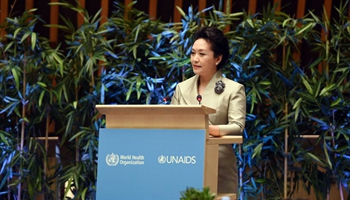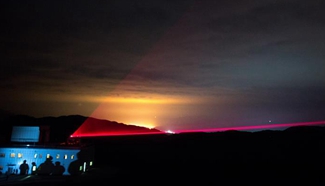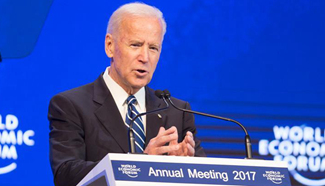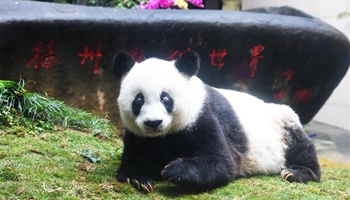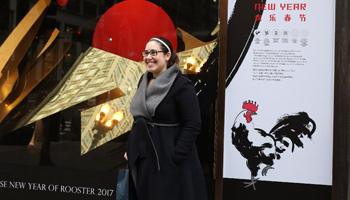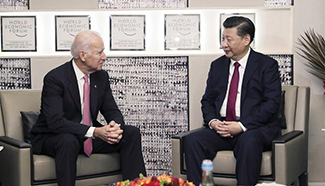by Mahmoud Fouly, Abdel-Maguid Kamal
CAIRO, Jan. 18 (Xinhua) -- Residents living in the neighborhood of Abu Rawash, just a few kilometers from the Giza Pyramids, are known for hunting animals and raising reptiles.
One Egyptian hunter, Salah Tolba, decided to turn his hobby into an animal exhibition business via a rare licensed private zoo.
Africano Tolba Village is a private zoo established by 50-year-old hunter Salah Tolba.
Two adjacent large cages containing a lion and two lionesses are featured in the center of the zoo's open yard, surrounded by several cages of various animals, reptiles and birds.
"I inherited the hunting hobby from my father and grandfathers and establishing this zoo had always been a dream of mine. I have 20 reptile species and between 10 to 15 other animal species in my zoo," Tolba told Xinhua at his private zoo, noting that his family has been in this business for almost 200 years.
Tolba said he received the license to establish the zoo after several committees from the General Authority for Veterinary Services and the Ministry of Environment checked his place to ensure it met the required qualifications.
"It took me five years of preparation to officially open the zoo for visitors in 2013."
The veteran hunter said he bought the lion and two lionesses from the Giza Zoo which belongs to Egypt's Ministry of Agriculture.
"I did not buy them just for exhibition but for breeding and reproduction," said the hunter, stating that he named the lion "Udayy," an Arabic male macho-sounding name, whereas he named the two lionesses after two pretty Lebanese female singers "Nancy" and "Haifaa."
Tolba said he built the zoo in the ground floor of his three-floor house as he wanted to be close to the animals in order to take good care of them.
Raising wild animals stirred up a heated debate in Egypt after a tiger which escaped from a wild animal farm killed a four-year-old girl in September 2016.
The wild animal farm belonged to a university professor in the Ayyat neighborhood in Giza.
Plus, a circus lion killed its 25-year-old trainer during a show in Alexandria in front of school children also in November.
"I sleep beside the animals as I have to personally check that all their cages are locked, because if I forget a lion's cage open, it may get out and hurt someone, in which case I would be punished and the zoo would be closed down," he said.
Most zoo employees are from Tolba's family.
Tolba's wife, children and their spouses help clean the zoo and feed the animals, including Tolba's young granddaughter who fearlessly helps clean the glass cages of poisonous snakes.
A dozen visitors of mostly women and children tour the small zoo which provides informative slides for children, and they enjoy watching the lions, foxes, fennecs, monkeys, hyenas, wild cats, snakes, lizards and birds on display.
"The zoo receives large numbers of visitors during feasts, up to 5,000 visitors. The lions and anaconda exhibits are the most popular with visitors," Tolba told Xinhua.
Tolba said the zoo's annual profit is around 8,000 U.S. dollars and it receives roughly 100 visitors a month except during feasts when the private zoo receives around 5,000 visitors.
Tolba noted that the zoo needs patience in order to succeed, adding that he opened both a coffee shop and a ceremony hall for rent in order to increase his revenues to cover the zoo expenses and make a profit.
He added that his family has always contributed to scientific research in Egypt, furnishing university colleges of medicine and science, research centers, scientific laboratories, zoos and other institutes with animals for various purposes.
"Currently, I'm thinking of establishing a substantial snake venom extract project for pharmaceutical companies in Egypt and overseas. However, it needs extensive funding and I'm currently looking for a partner," Tolba told Xinhua.

